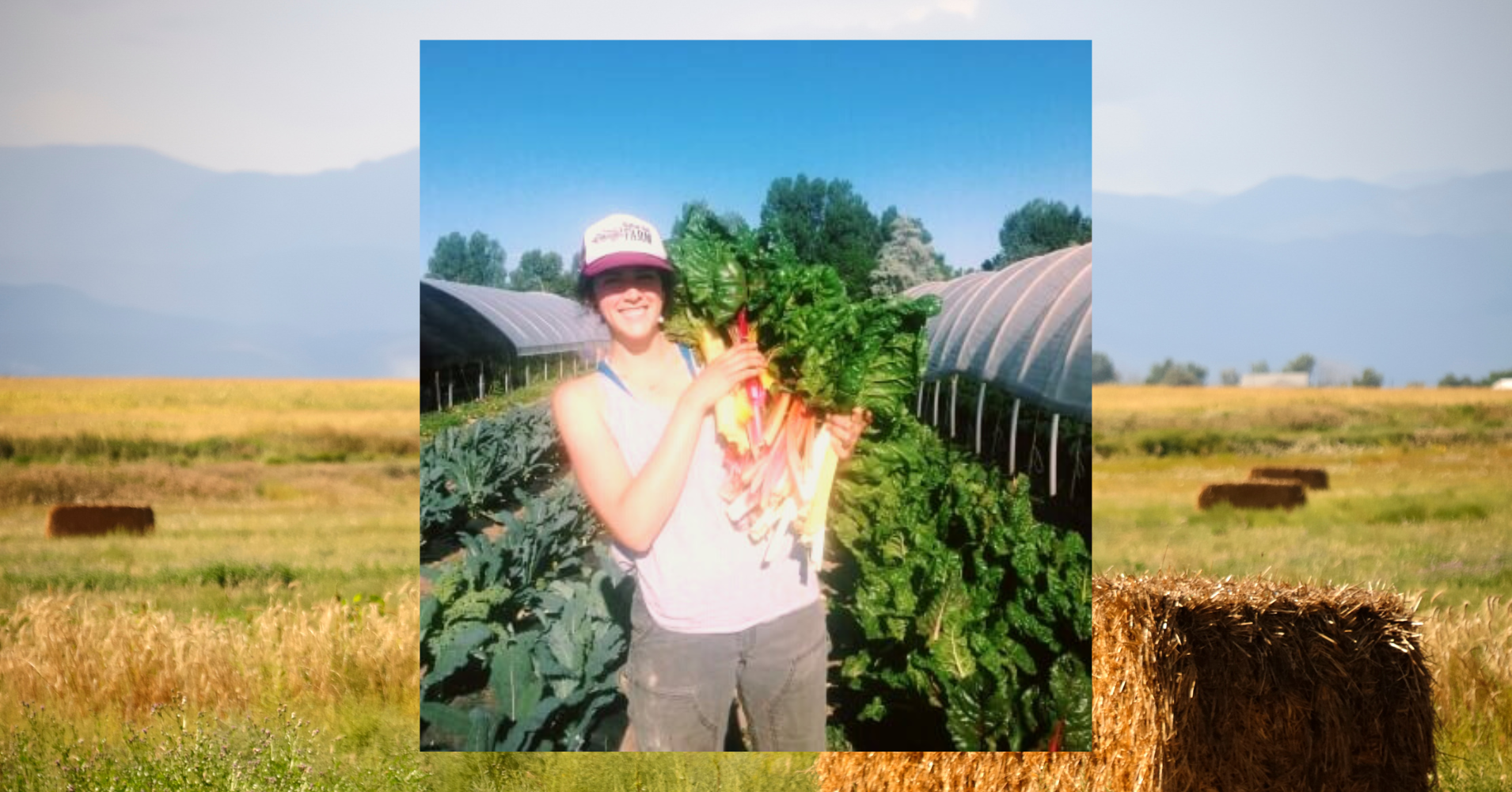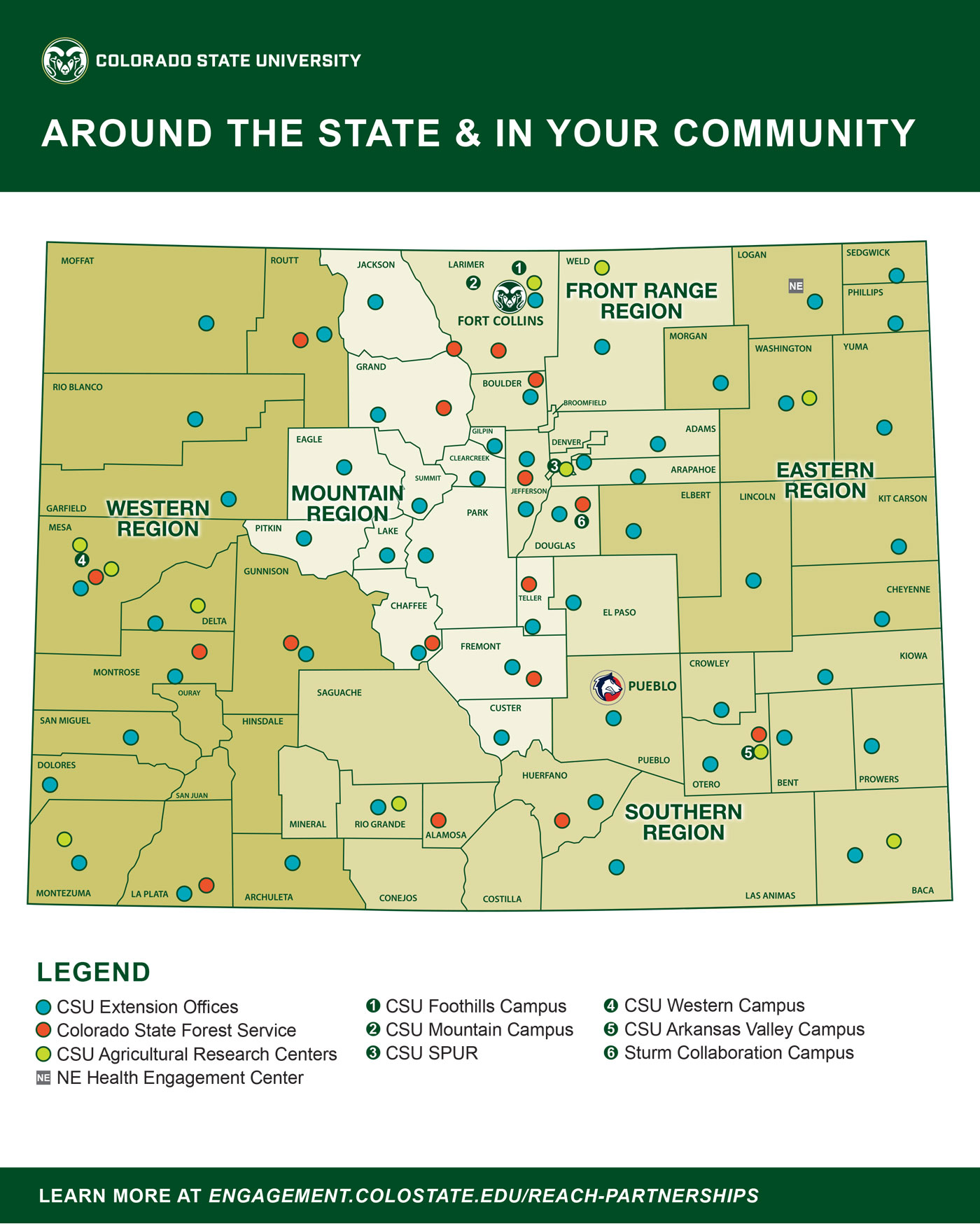Q&A with Nicole Didero: Rural Initiative Thriving Communities Specialist, Western Region

This Q&A is part of a continuing series introducing the newly hired specialists who are part of the CSU Office of Engagement and Extension's Rural Initiative.
Nicole Didero is one of 14 new Rural Initiative specialists who recently joined CSU Extension. Didero will be focusing on helping communities thrive across Colorado’s western region, with a focus on food and agriculture production. The western region includes 16 counties spanning over 32,800 square miles.
Didero earned both her undergraduate and graduate degrees at CSU, earning a B.S. in natural resource management and a M.S. in agricultural and resource economics.
Just a month into her new position, Didero shared what excites her about the job, how her background positions her to make an impact in the community, and what community needs she hopes to address through her work.
“In our state, rural communities are such a big part of our histories and cultures and identities and so supporting these rural voices is only going to help our state overall.”
– Nicole Didero, CSU Extension Thriving Communities Specialist
“I’m super excited that part of this new job is getting to know communities in my region and around Colorado and getting to talk about a topic that I love, which is food and agriculture and economic well-being.”
“On a personal note, my mom’s family is from southern Colorado, in Trinidad, and I was fifth generation on our family’s ranch before unfortunately the ranch was sold in the early ’90s, so that part of my family’s history and the stories I grew up with about the ranch, not having grown up on the ranch, is a really big driver for me because I think that I know that these food and agriculture is based around people and families and they have stories and desires and wants and so I really want to connect with families in these areas to be a part of their stories and their successes.
On a professional note, I did my undergrad at Colorado State University in natural resources management and from that I really had this understand and curiosity to know more about the relationship between the health and viability of our natural resources and how that supports the health and well-being of our agricultural food systems.
I worked for two years full time on community support agriculture farms as a full time farm laborer, just wanted to honestly get in the ground, learn how to drive a tractor, learn about what it means to be a farmer and try and support communities with food and feed people good food but also be profitable at the same time. That was an amazing experience and from that I decided to, instead of pursuing farming, to try and support farmers better. So, I went for a masters in agricultural and resource economics and now I am here at Extension and have a little background working with my hands and a little background in economics, which hopefully will be super helpful.”
“So, my greatest hope at my core is that through these next couple years working through the Rural Initiative, people will feel like they were supported and this was something they were really glad CSU created.
In terms of the specific hopes I hope to address in the communities I’ll be working with, that’s hard to answer right now because, for example, the Western region has 16 counties and there are a lot of communities, similar and different, in those counties.
So, in general I would say some important food systems and economic development concerns that I have heard about just being a community member in this area are helping producers get value added product out into a market that is profitable. So, supporting on the agricultural production side in that way.
And then of course we have a housing crisis that affects not only food and agriculture, but so many other areas of our community concerns and, you know, also just mental health. I know that may seem like it’s not directly related to agriculture and food, but it totally is.
So, I’m really excited that we have different disciplines in the Rural Initiative, being improve health and accessible education, vibrant communities and thriving economies, because these are all interconnected and so the concerns I just listed are not only coming from a food and ag perspective.
But, to start, I think in order for me to address and understand first and then address the concerns, I have a lot more listening to do and I’m really excited to do that.”
“Collaboration, what a great word. When I think about how collaboration can help solve difficult challenges, what I think about first is trust. So, in my mind and in my heart I really feel like collaboration is not possible without first building trust and then with the foundation of trust then collaboration is full of opportunities to help solve difficult challenges.
So, inherently, I think that by working on facilitating conversations that may be difficult, but finding common ground and working together on civil discourse to seek understanding, and if we don’t agree that’s okay, just understand where people are coming from, we can then create that place to grow from with trust first.
And then aim for collaboration in, ‘Okay, now if we trust each other, or can at least understand where one’s coming from, let’s work together,’ which is that collaboration piece. And collaboration with transparent conversation, facilitated organization and again, back to understand, maybe a little vulnerability.
I think there is a lot we can do in addressing wicked problems and difficult questions and challenges and ultimately learn something from each other and hopefully knit back our community together as a diverse network of people and experiences.”
“It is so important to support and listen to rural communities because just like anywhere else these places are full of people and families who have hopes and dreams and aspirations and culture and stories to share and they also have fears and challenges and they deserve to be heard as well, so it’s so important and in our state rural communities are such a big part of our histories and cultures and identities and so supporting these rural voices is only going to help our state overall as one big beautiful place where all kinds of people live.
I’ll just finish by saying, I’m so excited about this initiative and I really appreciate CSU recognizing at this point that we for a long time have not been supporting or listening to rural communities in the best way possible so what my hopes are for my role are to be a connector and support and figure out what amazing work is already going on, elevate that work, bring it to the forefront and also identify where capacity is needed and again connect resources so that we can support in that way too and I just am really excited that this initiative exists and really hope to do good work and listen well and I’m really excited that I get to do it in the communities that I love.”
